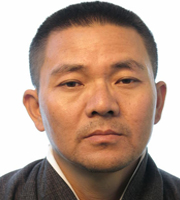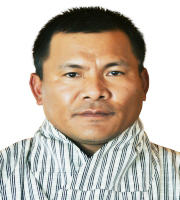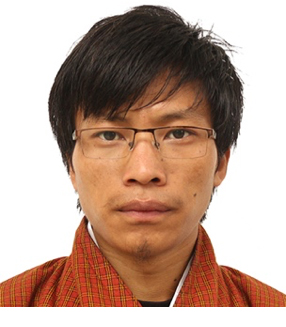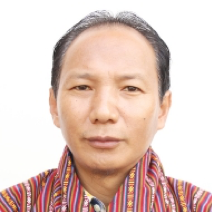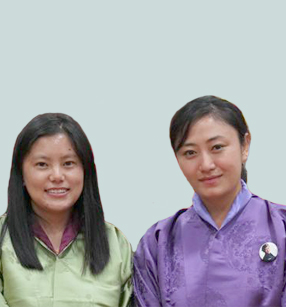The civil service in Bhutan is currently undergoing an unprecedented transformation in keeping with the Royal Kasho on civil service reform and towards the new vision of a developed Bhutan. It would hopefully be a matter of years within which we could see tangible and substantial outcomes of all the transformative works that are currently underway. We are indeed living through exciting and opportune times in our lives to be a part of these reforms, and it is incumbent upon each one of us in the civil service to reflect and situate our own roles in this reform process and beyond.
It is also particularly propitious that we are undertaking such transformative initiatives at a time when we have begun the inevitable and arduous journey of building forward our country from the impact of the pandemic. While COVID-19 has posed several economic and social challenges, it has also given us the opportunity to re-orient and re-position ourselves to emerge better and stronger. In this context, the reforms in the bureaucracy, education and other sectors couldn’t have come at a better time.
The role of the civil service in nation-building is undisputed, and indeed non-negotiable. And as recognised in the Royal Kasho, we have the numerical strength and the required knowledge, skills, exposure and experience in our civil service. But this has apparently not translated into commensurate performance and accomplishments, hence, the call for reforms. We have done so much, and we could do so much more.
Bhutan is a modern welfare state and those of us running the state machinery, as indeed the primary beneficiaries, need to provide role-modelship to the rest of the country in terms of hard work, efficiency and productivity. If the civil service can get this right, we can drive the rest of the country out of the comfort zone toward a culture of self-realisation, industriousness and self-reliance.
As per the Civil Service Statistics 2021, the size of the civil service in Bhutan is 31,177 as of 31st December 2021. Between 2008 and 2021, the cumulative growth in the civil service strength is recorded at 64.83%. As of December 2021, civil servants constitute 4.12% of the country’s total population (it is about 1.5% in Singapore and 1.9% in South Korea). The ratio of civil servants to the population is about 1:24, at least doubly better than Singapore’s 1:64 or South Korea’s 1:50. The median age in the Bhutanese civil service is 35 years in 2021.
Of the total of 26,322 regular civil servants, 34 have PhDs, 2760 have Master’s Degrees, 2515 have PGs, 8030 have Bachelor’s Degrees while 12,983 have Diplomas or lower qualifications. In 2021 alone, a total of 351 civil servants were approved for long-term training.
Despite the staggering statistics, civil service productivity has always been a matter of concern. The provision of lifelong employment and stability has perpetuated a culture of performance stagnation and a bloated civil service with a lot of deadwood. Most civil servants were getting used to a culture of doing the bare minimum. We come a little late to the office and leave a little early, and there is so much in between that keeps us away from doing meaningful and productive work for the organisation. And outside the “9 am to 5 pm” supposedly magical corridor of time, there is usually little flexibility and accommodation for public service work.
Quantity of work we churn out matters as much as quality. Procrastination and delays have associated costs that impact the entire value chain. We need to invest more time in our work to produce more outputs, at least by the rule of thumb. If each civil servant is willing to give one-hour extra work each day outside the 9 am to 5 pm window, we will be collectively contributing 43 months’ worth of work every day to nation-building.
It has been over six decades since Bhutan launched its five-year development plans, and we have come a long way. Yet we can’t help but compare ourselves with countries like Singapore and South Korea that started their development journey around the same time. The fact that we are still an LDC depending on foreign aid is the single biggest realization that every civil servant must own, and it should drive us to do more. Our productivity needs to match the potential we have and the resources we expend on the civil servants. We need to do all we can to avoid a “tragedy of the commons” and ensure that our modern welfare state thrives and sustains.
The other aspect of civil service is the quality of the work we do. With a high level of job security, a poor culture of supervision and a weak mechanism of accountability, the quality of work we do is often compromised. We say compromised because the poor quality of outcomes is not always a result of inability. The Royal Kasho on civil service reform highlights that “the core impediments against the development of a more professional and efficient bureaucracy remain entrenched in the system.” When a culture of getting through with mediocre work becomes pervasive, there is no sense of pride and ownership in what we do or the impact that our work would have. We then do things for mere compliance with the minimum requirements set in our ToRs, IWPs, or APAs, and simply sail through without much turbulence or trepidation.
Among other things, becoming a developed country will demand us to have higher levels of depth and sophistication in our thinking, the work we do and the results we produce. And this should manifest in both tangible and intangible forms, from the cultures and systems we develop in our organisations to the policies we formulate and implement for our country, or from the ways we interact with the outside world to the quality of infrastructures that we build. We need to dream big and yet care for the smallest details, and achieve a certain degree of finesse in whatever we do. We ought to embrace a growth mindset and cultivate the habit of lifelong learning; depth and sophistication cannot be achieved overnight by googling. Conscientiousness, grit and professionalism are values we must promote in the civil service.
Civil service is a calling that transcends the meaning and benefits of mere employment. What we do (or don’t do), and how well we do what we do have larger ramifications for the country, the people and our future. At the end of the day, it is the civil service machinery that would drive the whole country forward or backwards depending on what it does, how much and how well. His Majesty has always emphasised the importance of the civil service as a permanent institution to ensure continuity and progress in our developmental pursuits. We need to view civil service in the right light and with the right lens, and we could realise that it is a profession worth committing our lives to, for all the difference that it can make.
With so many changes already taking place in the civil service as part of the reforms, we are living through some opportune times in our personal lives and professional careers as civil servants. Much like the larger systemic transformations that are underway, there is the need for deep reflection and soul-searching among civil servants in order to re-discover ourselves and unleash the true potential that we have, individually and collectively, to make a real difference. If the wealth of knowledge, skills, and experience we have in the civil service is used to the fullest, with all civil servants doing all that we can to the best of our abilities, there is no reason why we cannot achieve excellence or become exceptional in the world, as His Majesty envisions. Those countries who got there before us came the same way, fully leveraging shared vision and sense of purpose, collective merits and the true power of human potential.
We are at a crossroads, and we are indeed privileged to be among this generation of civil servants entrusted with the unprecedented responsibility of transforming Bhutan’s civil service, and the opportunity to shape and secure our country’s future. This is a sacred responsibility that we as civil servants shall shoulder “even if lightning should strike from above, the space in-between collapse, or the earth below move” as the Royal Kasho states of the Zhabdrung’s fearless resolve in building our nation.

